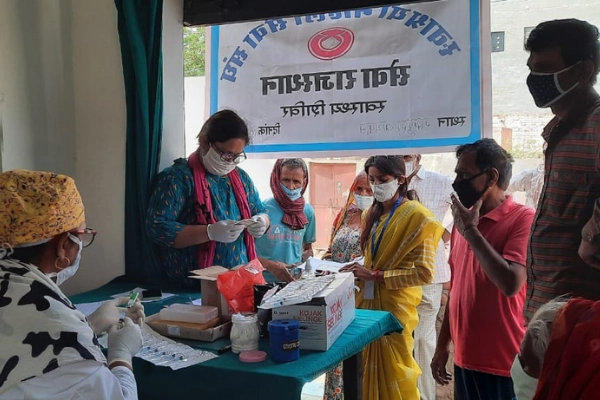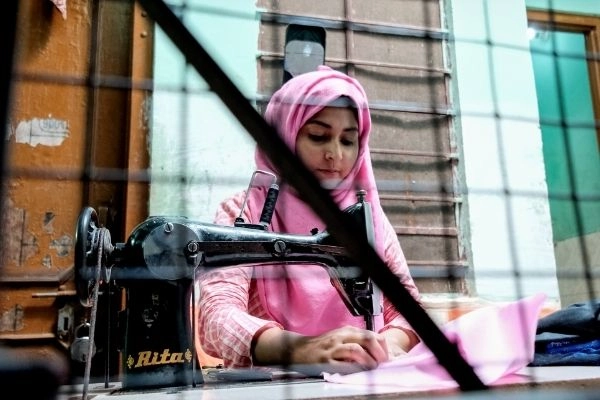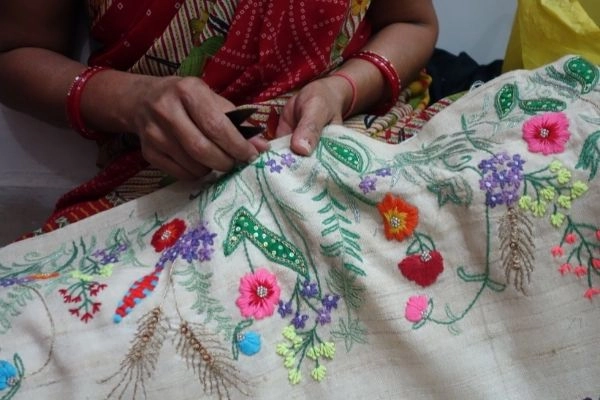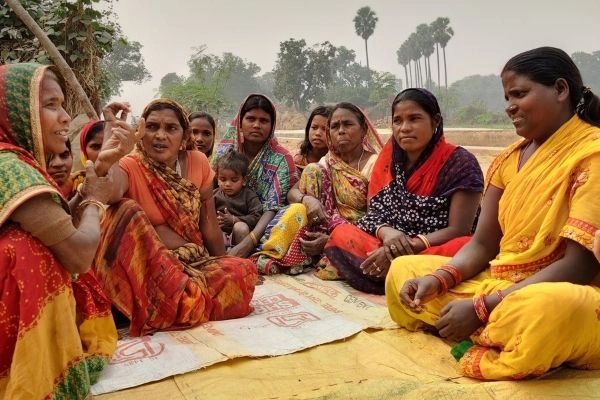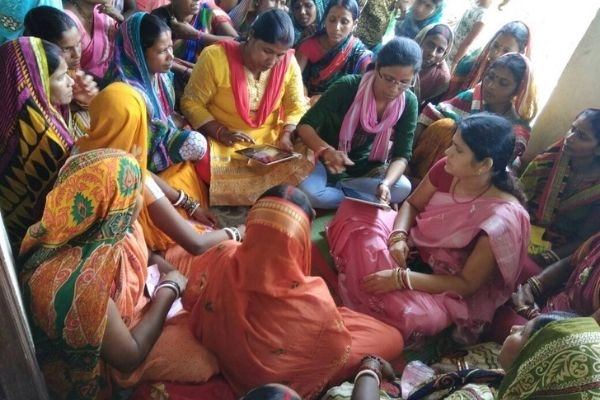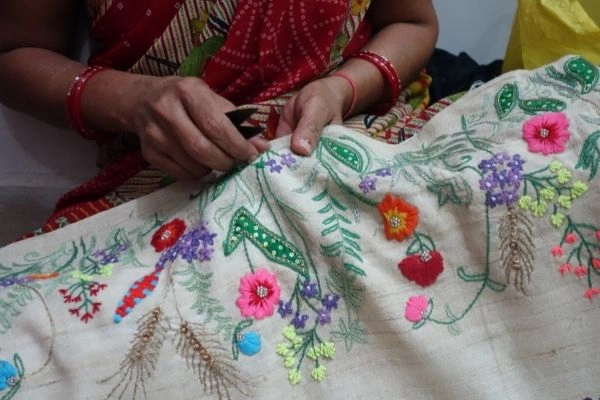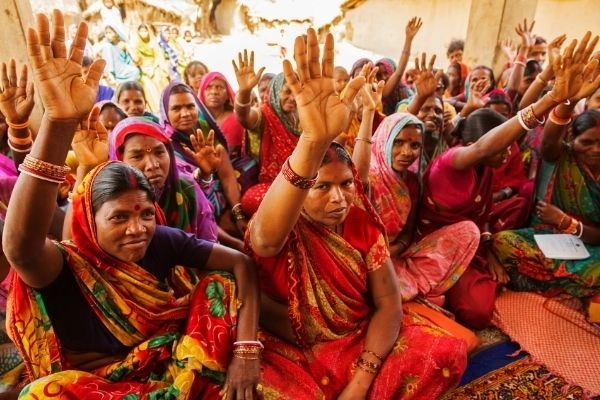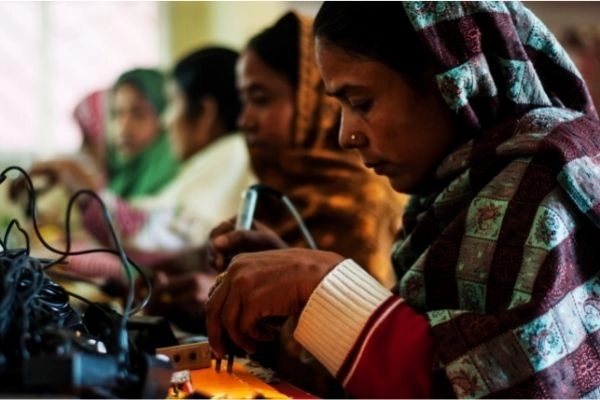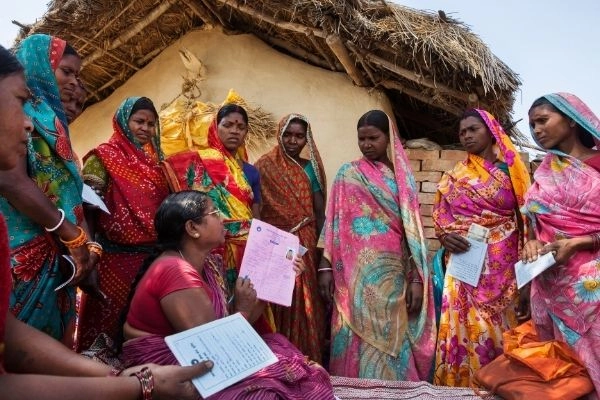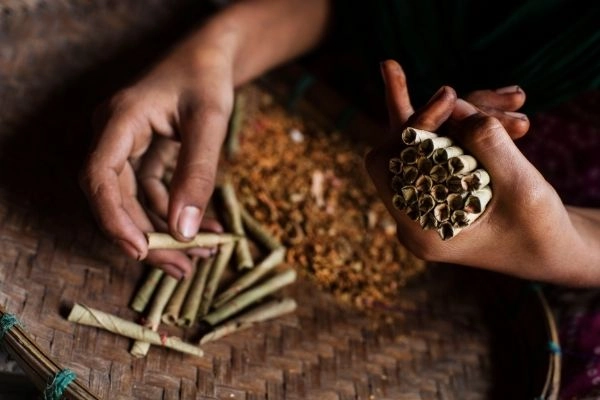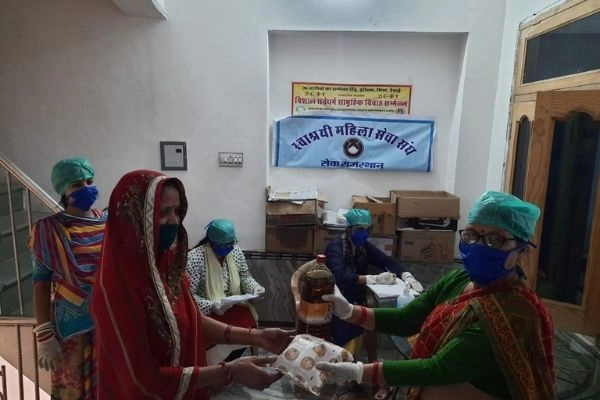Search Research Publications on Sewa Bharat
I don’t share personal details with just anybody,” said Gunja Kumari Ben, a resident of Bhagalpur, Bihar, as she was approached for a conversation. But when we came to know that she was being approached by SEWA Bharat, Gunja Ben visibly let go of some of her inhibitions. She told that she was familiar with the organization’s work, and began sharing about her trade and recent struggles as a microentrepreneur. She is a tailor who used to earn well until two years ago, but since the onset of COVID-19, she has lost her source of income. Even her husband lost his means of livelihood that came through a cloth business. Gunja Ben and her family had some savings during the 2020 lockdown with which they were able to run their household. But during the second lockdown, it became imperative for them to get a loan from a moneylender at a massive interest rate of 10%, which they are under pressure to return soon. Gunja Ben keeps herself updated about the fast-spreading disease, the possibility of lockdowns, and the vaccine through the TV news, Whatsapp groups, neighbors, and newspapers. She proudly tells us how she uses a mask and sanitizer even within her house and washes her hands multiple times a day. Despite her economic condition she remains hopeful that: when the lockdown opens, she will get to work again.
I don’t share personal details with just anybody,” said Gunja Kumari Ben, a resident of Bhagalpur, Bihar, as she was approached for a conversation. But when we came to know that she was being approached by SEWA Bharat, Gunja Ben visibly let go of some of her inhibitions. She told that she was familiar with the organization’s work, and began sharing about her trade and recent struggles as a microentrepreneur. She is a tailor who used to earn well until two years ago, but since the onset of COVID-19, she has lost her source of income. Even her husband lost his means of livelihood that came through a cloth business. Gunja Ben and her family had some savings during the 2020 lockdown with which they were able to run their household. But during the second lockdown, it became imperative for them to get a loan from a moneylender at a massive interest rate of 10%, which they are under pressure to return soon. Gunja Ben keeps herself updated about the fast-spreading disease, the possibility of lockdowns, and the vaccine through the TV news, Whatsapp groups, neighbors, and newspapers. She proudly tells us how she uses a mask and sanitizer even within her house and washes her hands multiple times a day. Despite her economic condition she remains hopeful that: when the lockdown opens, she will get to work again.


Sample Text


Latest Publications
Status of Social Enterprises within the SEWA Ecosystem
A report on the status of social enterprises within the SEWA ecosystem
Domestic Workers Organise for their Recognition and Rights: The SEWA Process
The impact of collectivization on the rights and work of domestic workers
Last Mile Model
How can communities become more participatory in their own governance and thereby bridge the gap between the State and market on one hand and vulnerable populations on the other?
Nurturing Finance
SEWA has long recognised the positive role that technology can play to empower women in the informal economy.
Valuing Informality: Implications for Policy and Research
Valuing informal work from policy perspective
Community Health In the Time of Corona
The COVID-19 pandemic and subsequent lockdown had given way to an acute sense of uncertainty and vulnerability; especially amongst informal sector workers. Informal sector workers in both urban and rural communities lack job security and social security and this had worsened due to the lockdown with many workers losing their jobs.

